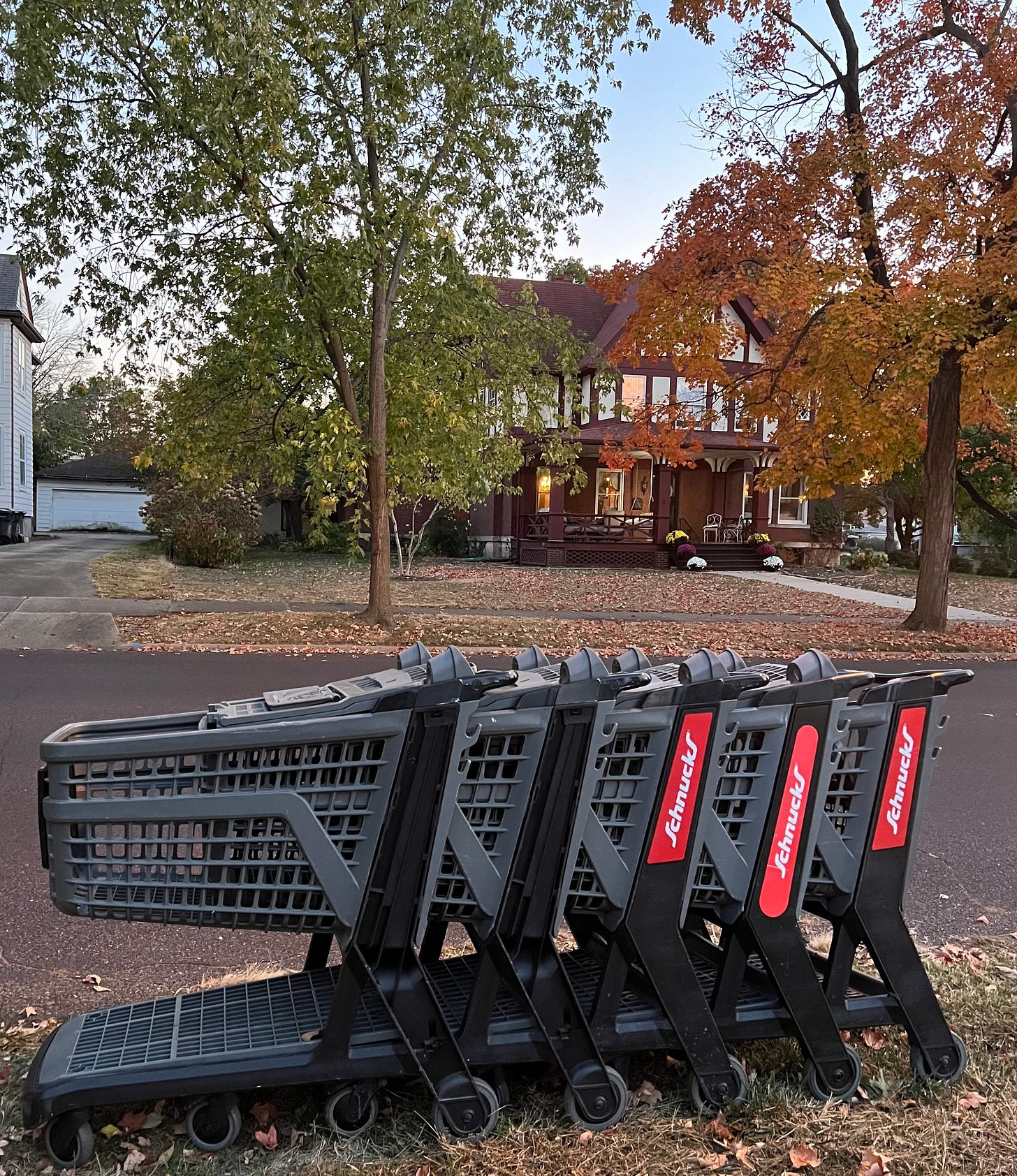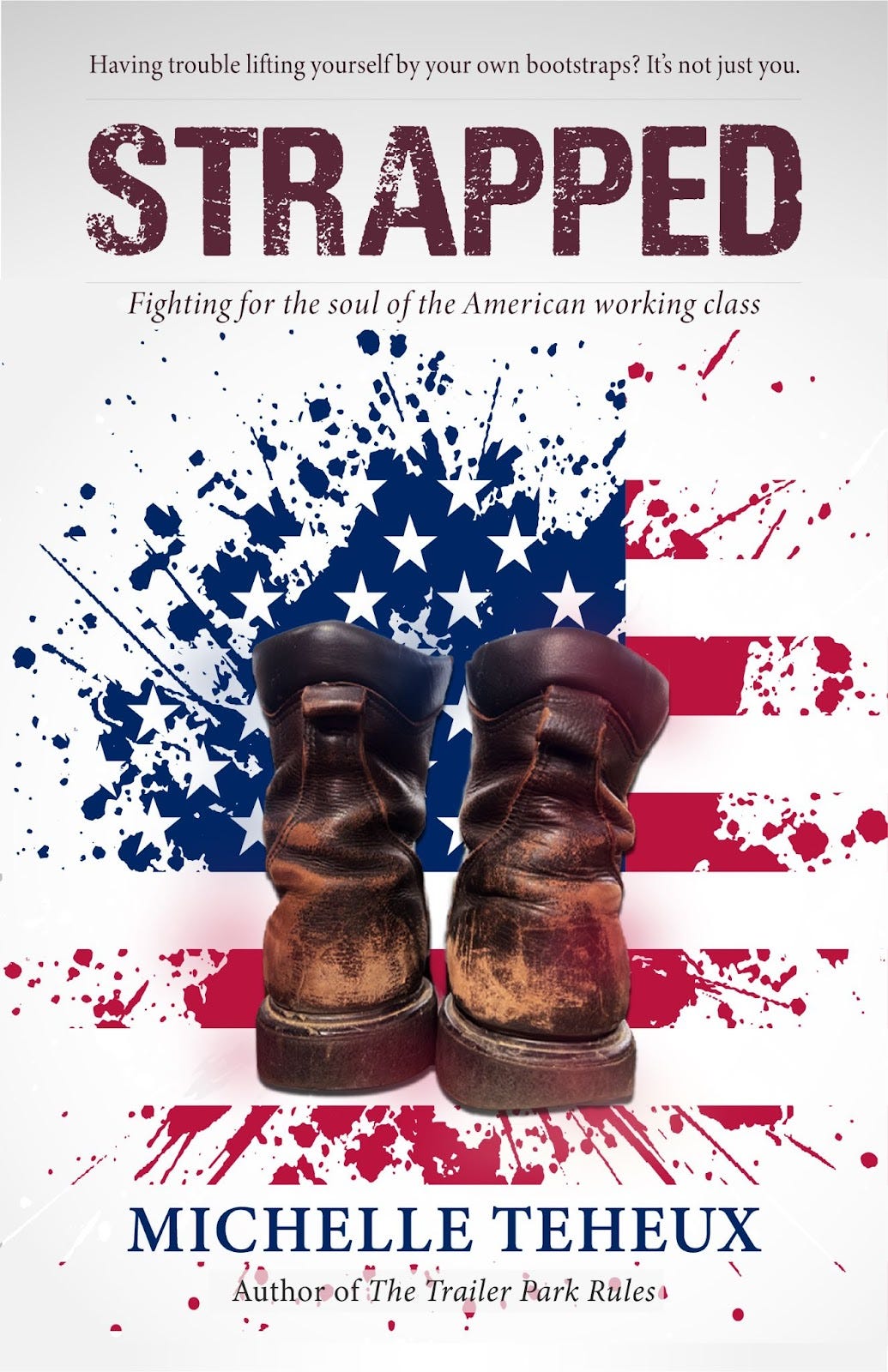
Once you start looking for news that touches on income inequality, you will see it everywhere. I started my new roundup last week, not sure if people would appreciate it or not, and with several new subscribers joining as a result of last week’s inaugural effort, I’d say they did!
Each of these pieces struck me as having some relation to income inequality.
As always, if you would like to suggest a story I missed, please add it in the comments!
A Better World Is Possible
The Peaceful Revolutionary
“The reality is that there are countries which are substantially better in some areas by whichever way you measure it: More safe, less violent; More financial security, less homelessness; Better health, less sickness; More happiness, less depression.”
Two things I've bought in Biden's lame duck period
Bethel Habte
“But with all this talk of tariffs I can’t help but feel like those Trump voters are in for a huge, rude awakening if their man gets his way and can’t be convinced otherwise.
We, in the middle and working class anyway, will feel the impacts of tariffs. Trump and his millionaire and billionaire friends will not.”
Chestnuts Roasting While The World's On Fire
Sarah Kendall Taber, Wonkette
“Assuming an average of 3 bushels/tree, that’s over 1,000 lbs of carbs each year for every American today. For context, our average annual intake of carbs via wheat, corn, potatoes, sugar, and other sweeteners is only 350 lbs per person. This helps explain why chestnuts are so prominent in our culture, even nearly a century after they disappeared. They were a staple.
Chestnuts’ demise was felt across the eastern US, but nowhere more than Appalachia. Its impact there was apocalyptic. With its main source of DIY food and shelter, forage for free-range hogs, and a cash export gone (nuts were gathered and exported to cities as food; bark and leaves were sold to tanneries), Appalachia turned to desperation labor. It’s hard to imagine coal mining becoming as prominent as it did, had chestnuts remained.”
A Side Effect of the Booming Job Market: Wage Inequality Is Way Down
Brent Orrell, The Bulwark
“Over the past four years, wage inequality has shrunk dramatically.
Since the 1980s, wage inequality has been mostly a one-way street, with the benefits of wage growth going to those with more education and skills while those with less have seen lower wage growth. This makes it surprising, to say the least, that Autor et al. find that since 2020, real wage increases among workers without college degrees have reversed nearly one-third of the cumulative rise in wage inequality from 1980 to 2019. They call this phenomenon the “unexpected compression” of wages, which harkens back to its only real analogue, the “great compression” that occurred during and after World War II. The overall trend has been that the wages of younger, less educated workers have risen quickly while wages at the top remained relatively flat, especially for workers with bachelor’s degrees.”
Fake Teeth
Jessica Defino: The Review of Beauty by Jessica Defino
“On the idea that obvious veneers — or “Chiclet teeth” — look cheap:
I think what’s missing in these analyses is the acknowledgement of another class that can’t even afford the “bad” work. So the people we’re saying look “poor” or “trashy” because of their Chiclet-esque veneers are, in fact, doing really well compared to pretty much everybody else in America. To spend $7,000 on fake teeth on a cosmetic tourism trip to Turkey is just completely inaccessible to the large majority of Americans. So this is a very sad class war to me, because it’s between the 1% and the rest of the top 10%.”
The Coffee Shop Encounter
Jess Piper, The View from Rural Missouri by Jess Piper
“I know the only way out of our current political position is to be in our communities. To physically meet folks — to look them in the eye and talk about our shared and common needs.
But, it’s not easy when I know I can’t change their minds — at least not in just one encounter. Maybe I can make them think, though? Maybe I can put a thought or two in their head? Maybe I can also learn not to be so rigid in my own ideas?
The first rule is “do not obey in advance” and in my mind, it looks like showing up and pushing back.
I don’t know that I changed anything with my meeting with the small town libertarian, but I know it didn’t hurt.
This feels like progress.”
Solutions: Free School Meals
Kathryn Anne Edwards, Kedits
“And yes, I know there’s lots of moral arguments of why we should help kids, but child poverty has never been zero percent in the richest country in the history of the world—those arguments fall on deaf ears.
Frankly, I think it’d be nice to move fully past our ketchup is a vegetable era.”
The Cabinet of Chain Saws
Michele Hornish, Small Deeds Done
“They are not assembling a team to marshal America’s great agencies to help the American people.
They are assembling the team to take up the chain saws.
It would be a mistake to think this chainsaw cabinet can’t fell institutions and agencies in a fraction of the time they took to build. And once destroyed, regrowth is a long and difficult process. It’s best to stop the destruction before it starts, if we can. And, at least for some, I think we can.
Just as activists force loggers to go through them to reach the old-growth trees, actual people can stand in the way and try to protect the agencies that Americans rely upon.”
Embarrassment of Riches No. 2: What’s getting me through the collapse
Dana Miranda, Healthy Rich
“We’re sitting in a deep pit of uncertainty in our new post-post-Trump era… and yet, we continue to wake up each day and continue to figure out the next right thing to do with our lives. That’s all we can do, I’ve accepted. Some of what I’ve read this month are takes that have helped me heal since the election — but much of it is the stuff of everyday lives that reminds me there are so many better people to fill my brain with than Donald Trump.”
About Michelle Teheux
I’m a writer in central Illinois. If you like my work, subscribe to me here or on Medium. My latest non-fiction book is Strapped: Fighting for the soul of the American working class. My latest novel is The Trailer Park Rules.
From the author of The Trailer Park Rules comes this enraging and engaging collection about all the ways our broken system sets us up to fail and whether there’s anything you can do about it.
Did you know that originally the term “bootstrapping” was used sarcastically to describe an impossible task? Yet now, the meaning has morphed into the opposite.
I invite you to give it a try. Reach back, grab your bootstraps and pull with all your might. How did that work out for you?
There’s a reason we tell people to pull themselves up by their own bootstraps even though we know it can’t be done. It’s one of the ways people in power keep the rest of us from complaining that we’re being screwed. We keep trying and trying and blaming ourselves when we have trouble. Of course we blame ourselves. Who else can we blame?
This is not a self-help book because you cannot single-handedly fix what’s wrong with the system by working harder or working smarter. There’s a good possibility that some of your problems are out of your hands.
This book was not written for the top 10 percent or for anyone who had life handed to them on a silver platter.
Instead, this book is for every working-class, lower-class and even middle-class person who has done everything right but still feels strapped.






That house would be 1.5m in my neighborhood
By most comparative measures, eg GDP/capita, the US is not the richest country in the world.